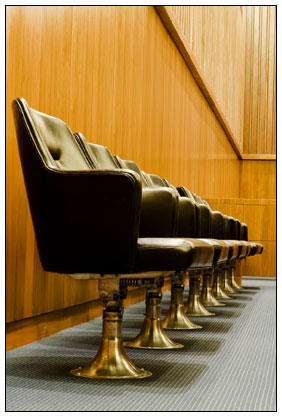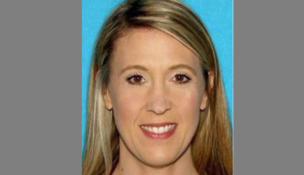Attorney jurors present risks, rewards
By: Jack Zemlicka, [email protected]//December 28, 2011//
 It should have been an easy strike.
It should have been an easy strike.
The Foley & Lardner LLP attorney with tasseled loafers and a sport coat with elbow patches screamed conservative, said personal injury plaintiff’s lawyer Paul Scoptur, and that was the type of person he didn’t want on his jury in a minor brain injury case.
But Scoptur’s wife, an attorney who was taking notes during jury selection for the 2005 case, persuaded him to keep the Foley lawyer on the jury.
“I remember the judge calling me over after selection,” said Scoptur, of Aiken & Scoptur SC, Milwaukee, “and saying, ‘Pretty risky keeping the lawyer,’ which isn’t what I wanted to hear.”
But the gamble paid off for Scoptur, who won the case and found out the attorney on the jury was an intellectual property lawyer with a background in organic chemistry.
A scientific background was what Scoptur wanted on the jury to make it easier to consider his argument that brain injuries are not limited to those that show up on an MRI.
“He was my ideal juror,” Scoptur said. “But I didn’t know that because I was fixated on the fact that he was a lawyer from Foley & Lardner.”
Successes such as Scoptur’s are the exception to the rule that attorney jurors are often toxic, said jury consultant Alan Tuerkheimer of Zagnoli McEvoy Foley LLC, Chicago. He said the prevailing philosophy when dealing with attorneys during voir dire is to proceed with caution.
“Most people think it’s risky,” he said. “There is a good chance attorneys could be overly influential or persuasive to a jury.”
Federal prosecutor Scott Campbell experienced firsthand in December how attorneys are treated when they’re in the jury pool. He was struck as a juror from two different criminal cases in Milwaukee County.
“I’d like to think they were preemptive challenges and not for cause,” Campbell said. “I think I can fairly and impartially consider evidence.”
But, Campbell said, he knew the prosecutor in one case and the defense attorney in the other, and those relationships could present the perception of bias.
“I can appreciate that a lot of defense attorneys might be biased,” he said, “no matter what a prosecutor says on the record.”
Those professional relationships also can have the opposite effect. That happened to Madison criminal defense lawyer Stephen Meyer, of Meyer Law Office, when he served on a federal drug and gun case in the 1990s.
“The prosecutor left me on the panel,” Meyer said, “because he knew I would be offended by the defense lawyer’s conduct in the case.”
The evidence supported a conviction, Meyer said, but his inclusion on the jury was a strategic play by the prosecution. It paid off, but it just as easily could have backfired, he said.
“Do you take a chance having this lawyer who you don’t know?” he said. “Or if you know them by reputation, is it a risk worth taking?”
Still, Tuerkheimer said, it will take more than a few fortuitous jury choices to persuade lawyers to welcome colleagues to the jury box.
“It is a gamble,” Tuerkheimer said. “But it’s about digging deeper than simply making a decision based on the fact that the person went to law school and is a practicing attorney.”
Scoptur learned his lesson with the 2005 brain injury trial and said he now takes time to question lawyer panelists instead of simply dismissing them.
“My gut reaction was to strike an attorney,” he said. “But the reality is they may know better than anyone the value of a claim. So I’m not sure the knee-jerk reaction is the best one.”
Legal News
- Milwaukee’s Common Council now has the most African Americans, women and openly LGBTQ members ever
- Office of School Safety Provides Behavioral and Threat Assessment Management Training Ahead of 25th Anniversary of Columbine Shooting
- Wisconsin Supreme Court to hear arguments in Democratic governor’s suit against GOP-led Legislature
- Lawsuit asks Wisconsin Supreme Court to strike down governor’s 400-year veto
- Wisconsin man pleads not guilty to neglect in disappearance of boy
- ACS Selects University of Wisconsin Law School’s Miriam Seifter for 2024 Ruth Bader Ginsburg Scholar Award
- People with disabilities sue in Wisconsin over lack of electronic absentee ballots
- Wisconsin Republicans ignore governor’s call to spend $125M to combat ‘forever chemicals’
- Native American voices are finally factoring into energy projects
- Steven Avery prosecutor Ken Kratz admits ‘mistakes were made’
- Colombian national extradited to Milwaukee faces International narcotics-trafficking conspiracy charge
- MPD: Milwaukee homicides down nearly 40 percent compared to last year
WLJ People
- Power 30 Personal Injury Attorneys – Russell Nicolet
- Power 30 Personal Injury Attorneys – Benjamin Nicolet
- Power 30 Personal Injury Attorneys – Dustin T. Woehl
- Power 30 Personal Injury Attorneys – Katherine Metzger
- Power 30 Personal Injury Attorneys – Joseph Ryan
- Power 30 Personal Injury Attorneys – James M. Ryan
- Power 30 Personal Injury Attorneys – Dana Wachs
- Power 30 Personal Injury Attorneys – Mark L. Thomsen
- Power 30 Personal Injury Attorneys – Matthew Lein
- Power 30 Personal Injury Attorneys – Jeffrey A. Pitman
- Power 30 Personal Injury Attorneys – William Pemberton
- Power 30 Personal Injury Attorneys – Howard S. Sicula











